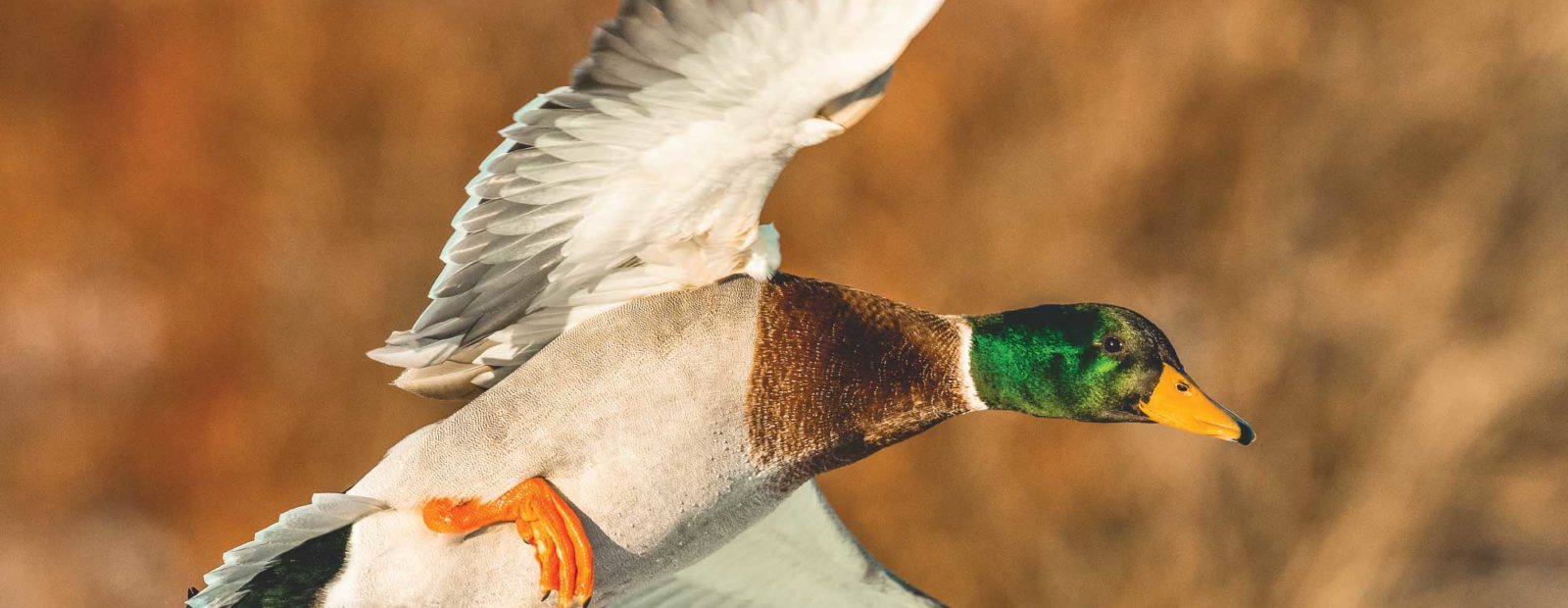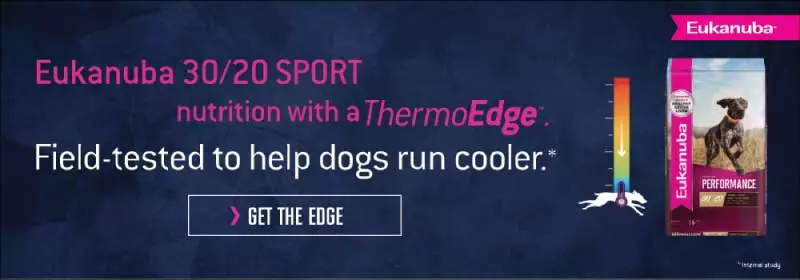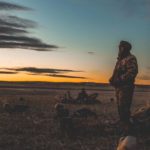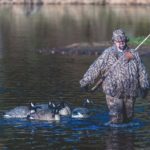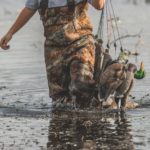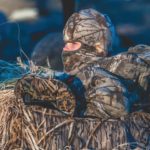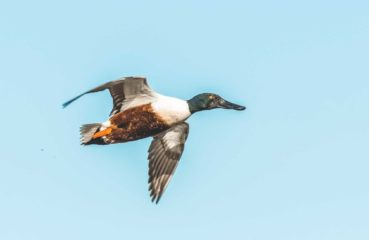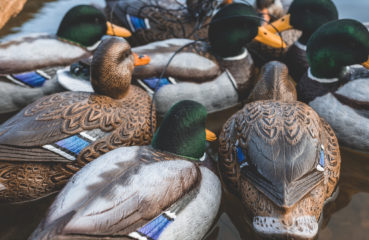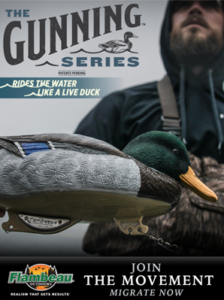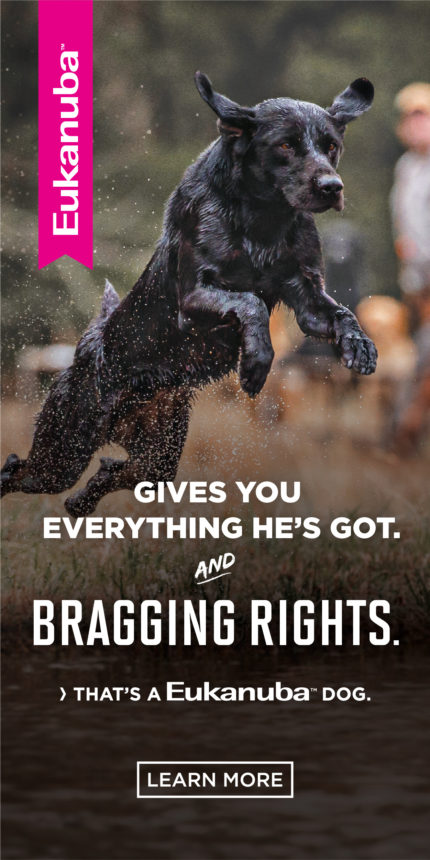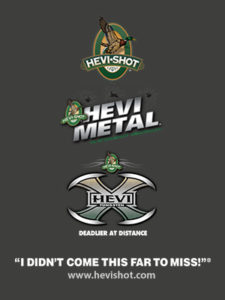The responsibilities of duck hunting extend beyond the pull of the trigger
It was a cold, blustery day on the tide flats – perfect for duck hunting, but terrible for staying comfortable on the water. The white caps on the open water pushed surges of saltwater through the reeds where I was hiding in my kayak. I wiggled my fingers to be sure they were still there. Small groups of mallards passed overhead, but they were headed for the safety of the large migratory raft somewhere in the distance.
Finally, a lone drake passed low enough that a shot was possible, so I willed my fingers into action and pulled the trigger. He locked his wings and sailed for a hundred yards before splashing into the open water. Coursing with adrenaline and overjoyed at my first duck of the season, I paddled furiously in the direction of the splash. Salt spray washed over my boat and the wind threatened to turn me around, but I kept my eyes fixed on the spot where he fell. Eventually I came upon the gorgeous bird and plucked him from the water, admired him briefly, gave a quick turn of the neck to ensure he was dead, and placed him safely behind my seat.
Between the exertion and the elation I was no longer feeling the cold, so I settled into my hiding spot and waited for another group to fly over. I took a shot and missed, but the recoil caused something to roll around in the back of my boat. I assumed it was my water bottle and turned around to reach for it. When I tipped my seat forward, I was shocked to be nose-to-bill with one very alive, very ticked-off drake mallard.
I slammed the seat back into position and considered my next move. While I processed the fact that this supposedly dead mallard was now on his feet and plotting revenge, he scurried to the back of the boat and slipped out from under the layout blind cover. Crap. I hopped out of the boat and waded over to where he swam, assuming this was just a short burst of energy from a mortally wounded bird. It was not. Just as I got within an arm’s reach, he made a bid for freedom and took off. I watched helplessly (and unarmed) while he flew off as though he had not just been shot and dispatched moments ago. I was equal parts hopping mad and laughing aloud. What on earth just happened?
I ended up with no other ducks that day, so I paddled out with only my crazy story and my broken ego. If I’d been hunting alone I might have talked myself out of believing my own eyes, but thankfully there was a witness to the whole ordeal. As we headed back to the truck, we talked about how incredibly tough these birds can be and the importance of an effective dispatch. I have no idea what happened to that duck after he flew away, but I have to assume he wasn’t in perfect health for a long life.
I absolutely hate having to finish a bird with my own hands – it feels way too personal and can make me squeamish – but I understand why it’s important. If we’re going to hunt, then we have to take responsibility for the whole process.
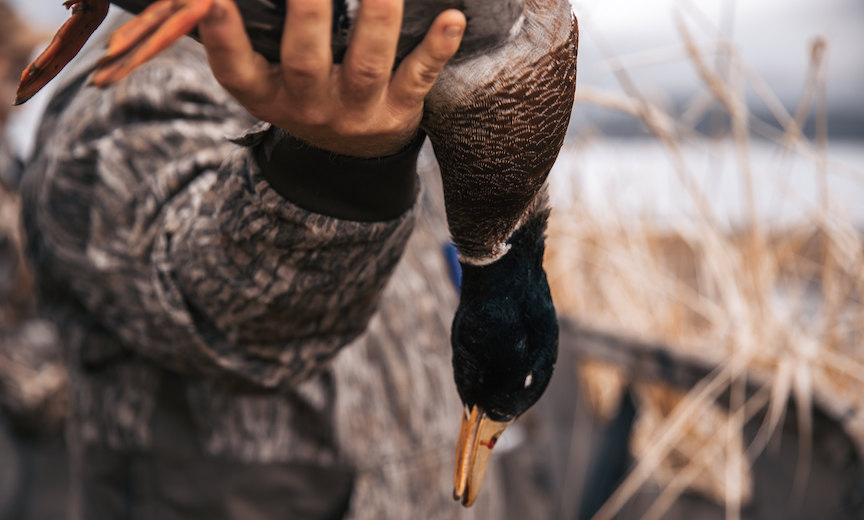
Ethics and Respect
For me, hunting ethics are guided by a question of respect. Am I respecting the environment that I’m entering? Am I respecting the birds that I’m shooting? Am I respecting the resource that I’m taking? If I’m not confident in those answers, then I should reevaluate what I’m doing. Ethical shooting, consistent game recovery, and – yes – effective dispatch are all elements of becoming a responsible hunter.
Ethical shooting doesn’t always have a clear answer. In many cases it requires a good understanding of your own shooting abilities, the performance of the ammunition you’re using, and the anatomy of the animal you’re targeting. In other words, it takes some real experience to develop an eye for an ethical shot. For a new hunter, that probably means working through this with a mentor or learning by trial and error.
Respect extends beyond the shot, too. Effective game recovery means preventing both waste and needless suffering, which in turn allows us to eat and enjoy each duck that we’ve shot. I love trying new recipes and learning to use every part of the duck, even if it’s intimidating. I enjoy sharing these meals with others who wouldn’t normally experience a wild game dinner, especially because it’s a great way to start a meaningful discussion about hunting for food.
Mentoring for Better Ethics
As mentors, we have a responsibility to pass on not only the “how-to” knowledge of hunting, but also the thought process behind making ethical decisions. Taking on the role of mentor allows us to influence someone who will (hopefully) be out in the field on their own someday. How can we best demonstrate respect for the environment and the animals? What do we wish our fellow hunters were doing out there?
Be a good example, pick up any trash encountered, and talk about being effective with the gun. Be ready to demonstrate dispatch techniques and explain why that’s important. Share your favorite duck recipe and offer to demonstrate how to clean and break down a duck carcass. It’s intimidating if you’ve never done it before.
Above all, be free of judgment. I’ve made plenty of mistakes as I’ve navigated this path as a self-taught hunter. I’ve taken shots that I shouldn’t have and I’ve lost wounded birds. I’ve let game meat get freezer-burned and thrown it out with great remorse. But no matter what happens, I do try to reflect on the day’s hunt and make a meaningful assessment of the choices I made. Would I do it any differently next time? That attitude can make the difference between a shooter and a hunter, and I strive to be worthy of the latter.
Last modified: July 19, 2022


